Graduate Program
Students Remember Buz Hunt
The Psychology Department is in remembrance of Professor Earl "Buz" Hunt who passed away in April 2016. Buz and his wife, Marylou, created a fellowship which supported graduate students with their independent research. So far, they have provided 14 awards to students from all areas of our program! We reached out to the students (past and current) who received this award to see just how impactful it was to their progress in the program and beyond.
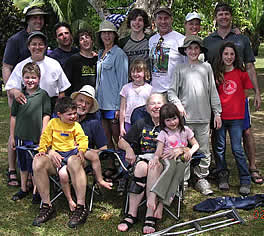 |
| Buz, Marylou, and Family |
One of our first Hunt recipients, Tami Rigterink (Developmental), used the fellowship to support her assay work which contributed to her dissertation. She analysed cortisol and alpha amylase that was collected from children exposed to domestic violence. The different levels of cortisol and alpha amylase might interact to predict trauma symptoms in these kids. Tami is currently an adjunct psychology professor at a small liberal arts college in Michigan. She remembers meeting Buz and feeling intimidated due to all his accomplishments, but he was "very warm and encouraging and down to earth." Berit Olsen Martin (Developmental) was the other recipient of the award in its inaugural year.
The next year, Kristie Fisher (Cognition & Perception) recalls that "it was always a treat to hear that Buz was going to guest speak at a colloquium or seminar class" and also experienced Buz's interest in graduate student research as an approachable and involved individual. Kristie supported herself through our graduate program as a teaching assistant, with the Hunt fellowship in hand, it allowed her the "mental space I needed to focus on writing my dissertation during a very stressful period when I was not just trying to graduate but also trying to make big career decisions." What Kristie accomplished in her research thanks to the Hunt award would ultimately have a part in leading her to her career in technology. She says, "I am so very grateful to Buz & Mary Lou Hunt for their support through the Hunt Fellowship, and I know Buz will never be forgotten by myself or my fellow graduate students who had the pleasure to know him." Caglar Akcay (Animal Behavior) was the other recipient of the Hunt award during summer 2011. He recalls Buz with a unique memory: "He was the author of the first textbook I ever read in grad school when I first started at University of Iowa (his Thoughts on Thought was the textbook of choice in the graduate cognitive class). So in a sense Buz Hunt's legacy book-ended my graduate career when I received the Hunt fellowship to finish my PhD in Animal Behavior."
In its third year, Tamara Spiewak Toub (Developmental) was selected as a Hunt fellow. She was able to spend her award quarter completing data collection, analyses, writing her dissertation, and successfully defending. "My research explored the relation between pretense and executive function skills, because many preschoolers struggle with executive function (e.g., acting based on careful thought rather than on impulse), and pretending is a promising strategy for helping them to control themselves in challenging situations." Tamara completed a postdoctoral position with the UW's I-LABS and is now at Temple University continuing her research with children and the benefits of pretending and forms of play to their development. Andrada Neacsiu (Adult Clinical) was the other recipient of the Hunt during summer 2012 and is currently an Assistant Professor in Psychiatry and Behavioral Sciences at Duke University.
In 2013, the Hunt recipients were Tom Soare (Animal Behavior) and J. Oliver Siy (Social Psychology & Personality). They both recognize the Hunt Fellowship support as integral to the completion of their graduate studies in a timely manner and to their careers in research. Tom was finishing his analyses and dissertation, "a population genetics study of the effect of landscape on dispersal behavior of army ants." He is currently at the Psychiatric and Neurodevelopmental Genetics Unit of the Center for Human Genetic Research at Massachusetts General Hospital. Oliver is working in the tech industry as a postdoctoral researcher.
Amanda Gilmore (Adult Clinical) and Yong Sang Jo (Behavioral Neuroscience) completed their degrees in 2014 with support from Hunt Fellowships. Amanda completed an APA-accredited internship at the VA in Puget Sound the following year, as her final requirement from our clinical program. Yong Sang assumed a postdoctoral position as a researcher in the UW Pharmacology Department to study the neurobiology of emotions and learning.
In 2015 both Hunt fellows were students in clinical psychology. Alissa Jerud (Adult Clinical with Lori Zoellner) and Stephanie Thompson (Child Clinical with Liliana Lengua) used the funding period to make major progress on their dissertation research and writing prior to assuming their required clinical internship positions. Both will be awarded PhDs in summer, 2016. Stephanie’s work examines the effect of prenatal stress on adjustment of preschool children, while Alissa’s research focuses on the effect of living with a parent with PTSD on fear learning of children. Both students have accepted postdoctoral positions and are incredibly grateful for the role the Hunt Fellowship played in helping them achieve their goals!
The current Hunt Fellows are Blake Pellman (Behavioral Neuroscience with Jeansok Kim) and Laura Brady (Social Psychology & Personality with Yuichi Shoda). In continuing the theme of Buz's great support for graduate students and their research, along with lifelong learning, Blake shares, "I once attended a talk he gave to the department during my first year in the program, and it was clear he cared deeply for psychological science and education. I instantly formed a great respect for the man." These students will be graduating in spring and summer 2016 thanks to the support from a wonderful endowment established by a memorable member of our department.
Our deepest gratitude to Buz and Marylou for all they have done and will do, in supporting independent Psychology graduate student research. We all thank you.
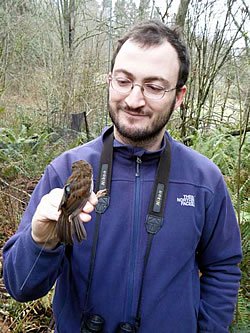 |
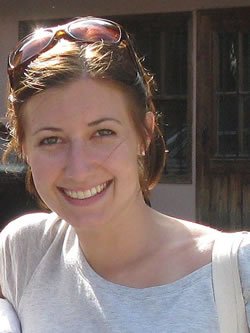 |
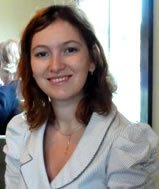 |
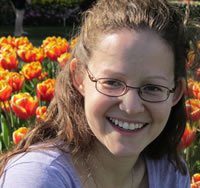 |
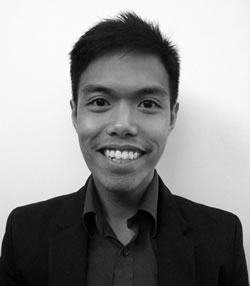 |
| L-R: Caglar Akcay, Kristie Fisher, Andrada Neacsiu, Tamara Spiewak Toub, J. Oliver Siy | ||||
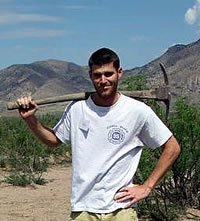 |
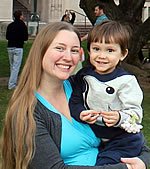 |
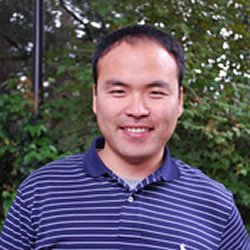 |
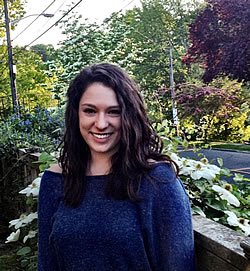 |
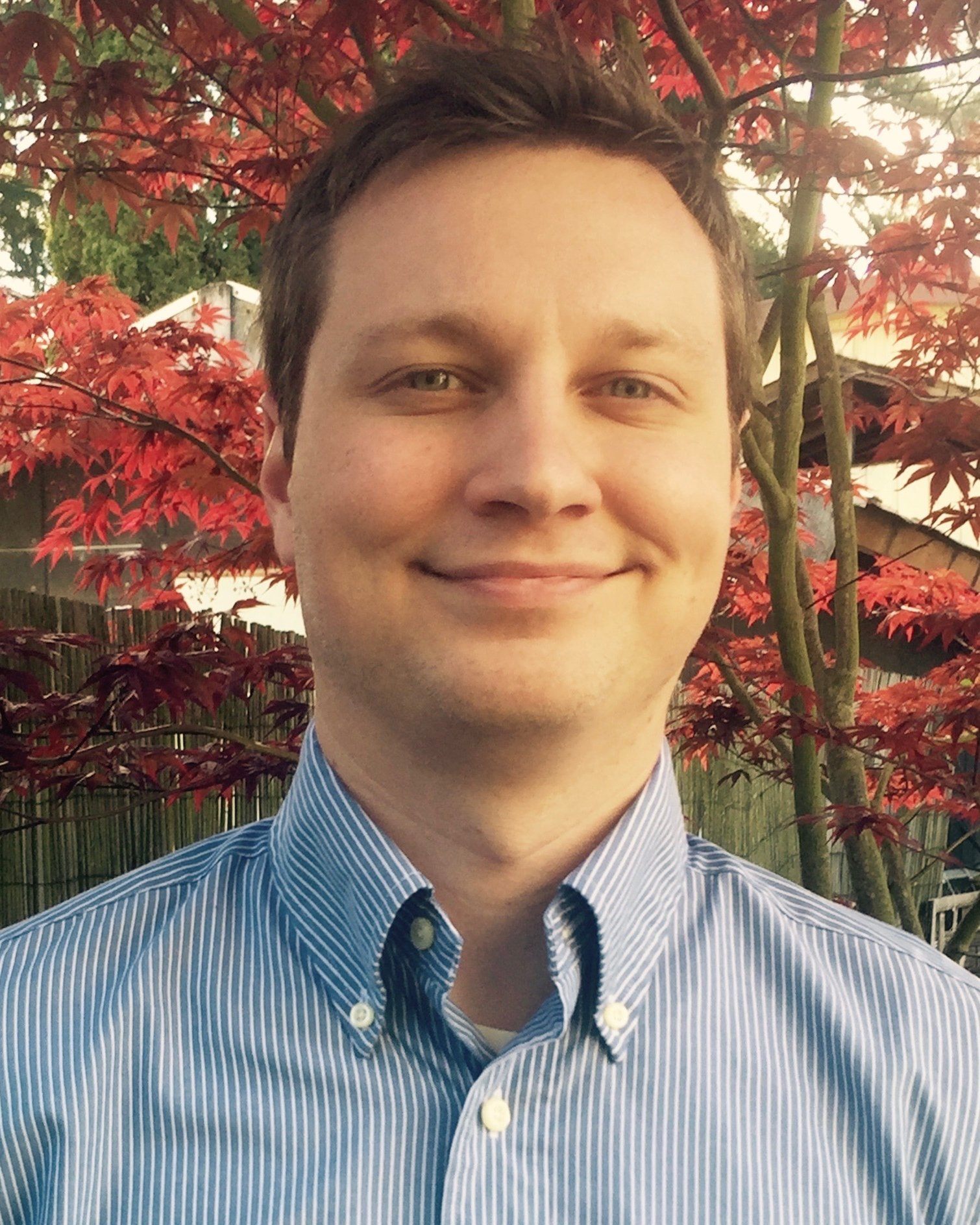 |
|
L-R: Tom Soare, Amanda Gilmore, Yong Sang Jo, Laura Brady, Blake Pellman. Not pictured: Alissa Jerud, Berit Olsen Martin, Tami Rigterink, Stephanie Thompson |
||||
Supplemental Reading:
- Earl Hunt Graduate Fellowship Fund provides supports to graduate students conducting independent research (individual research spotlight articles: year 1, year 2, year 3, year 4, year 5, year 6 was included as part of Graduate Accomplishments).
- Support UW Psychology Graduate Students by donating to the Earl Hunt Graduate Fellowship Fund.
Prestigious Start for a First Year!
Eric Gomez is a first year Social Psychology and Personality graduate student who is working with Professor Cheryl Kaiser. Upon joining our program in the fall, he was selected to receive a GO-MAP Presidential Diversity Fellowship and Graduate School Top Scholar Award. He adds to this already impressive list of funding with a Ford Foundation Fellowship! Get to learn about our new student by checking out our brief interview with him below.
 |
| Eric Gomez |
Let's start with the basics, where are you from and where did you complete undergrad?
I’ve been in the Bay Area my entire life until moving to Seattle. I lived in San Jose for a few years and then my family moved to Windsor, a town about an hour north of San Francisco. I got a BA in Psychology and minor in Feminist Studies from Stanford University.
How did you wind up at UW/why did you apply here? What do you think about living in Seattle?
I greatly admired the research being conducted by the professors here at the UW. I was attracted to the collaborative nature of the department and saw a lot of intersecting research interests with multiple professors.
Seattle is a charming city. Although I sometimes carry an umbrella, I actually love the rain. Sleeping and working to the sound of rain and running in the rain are a few of my favorite things.
What is your research interest and how did you get into it (what inspires/motivates you)?
I’m broadly interested in prejudice, identity, stereotyping, and stigma. I’m motivated by the challenge of making sense of the seemingly infinite factors of human behavior and the real-world applicability of psychological science.
How did you learn about your funding opportunity and tell us about the application/waiting process?
I learned about the Ford Foundation funding opportunity through my advisors and fellow students. The hardest part about the application process was refining what I wanted to say in so few pages.
How did you feel when you learned that your application was accepted and that you will receive funding?
I was both relieved to receive funding and energized to continue working toward the goals of the Ford Foundation—diversifying science and the academy. The decision also came out the same day as a rejection from a different fellowship so it turned a not-so-great day into a great one.
What is the name of your project and the funding source?
I proposed a project investigating whether engaging in online activism promotes subsequent activism at the individual level. I received a Predoctoral Fellowship from the Ford Foundation.
Do you have any advice/tips/suggestions for others who may apply to this opportunity? About graduate study in general?
Write a cohesive narrative that ties together your past, present, and future—but don’t just translate your CV into prose.
Take time off before graduate school—get more research experience or try something new to see if a PhD is right for you.
What do you hope to accomplish with the funding and/or while in the UW Psychology graduate program?
Spend more time on my research and take more classes in statistics and programming!
What do you like doing in your spare time?
Going on walks and runs in the city, watching movies (especially in theaters), playing video games, and hanging out with cats.
The last book and/or movie you saw and enjoyed?
It came out a while ago, but I saw “Mad Max: Fury Road” like six times at the movie theater.
What you plan to do once you complete your PhD?
I hope to stay involved in research. Becoming a professor and spending a lifetime learning, teaching, and mentoring sounds like a fulfilling way to do so.
Supplemental Reading:
- Arianne Eason (Social Psychology & Personality and Developmental graduate student working with Drs. Cheryl Kaiser and Jessica Sommerville) was a previous Ford Fellowship Recipient.
- Jose Ceballos (Cognition & Perception with Chantel Prat), Jessica Chen (Adult Clinical with Ronald Smith), and Exu Anton Mates (Animal Behavior with Jim and Renee Ha) also received fellowship awards from GO-MAP and shared their experiences.
- Graduate Opportunities & Minority Achievement Program (GOMAP)
- Support UW Psychology Graduate Students by donating.
Newest NRSA Fellow Seeks to Improve Access to Clinical Services
Julie Harrison (Child Clinical with Shannon Dorsey) is our latest student to receive NRSA funding for her research on expanding access of evidence-based practices to the public. The background of this research award was covered in a previous article. Learn more about Julie below!
 |
| Julie Harrison |
Let's start with the basics, where are you from and where did you complete undergrad/masters?
The place that most feels like “home” is Philadelphia. Starting from the beginning though—I was originally born in Florida, then in third grade my family moved to a tiny town (one stoplight; more cows than people) in farm country Pennsylvania. For college, I knew I needed to get to a city, so I attended Temple University in Philadelphia and then stayed in Philly a few years after as a research assistant.
How did you wind up at UW/why did you apply here? What do you think about living in Seattle?
I applied to UW mainly to work with my advisor, Shannon Dorsey—her research was/is exactly the area I want to pursue. Also, I was excited about UW’s reputation as a stellar research and clinical training program.
Seattle is great! I’ve always enjoyed the outdoors, and Seattle has offered some amazing opportunities to explore that side of myself.
What is your research interest and how did you get into it (what inspires/motivates you)?
Broadly, I’m interested in dissemination and implementation research to expand the public’s access to evidence-based practices. Here, at UW, I’ve become passionate about improving working conditions and increasing support for therapists at community agencies with the ultimate goal of decreasing the high annual turnover rates found in these settings.
How did you learn about your funding opportunity and tell us about the application/waiting process?
I’m my advisor’s first graduate student, and when I started we were both very enthusiastic about finding me funding opportunities for independent research. We actually started the NRSA application process the first quarter of my first year here at UW. The process was long and tedious, but I am very thankful to have had the opportunity (and so much of my advisor’s time!) to learn about the grant writing process first hand.
The waiting process was the easiest part!
How did you feel when you learned that your application was accepted and that you will receive funding?
It was amazing! After I got the news, it probably took a month for me to actually believe it was real. I had worked so hard on this application and for so long, that I thought it was too good to be true that I was actually going to be funded to do this research!
What is the name of your project and the funding source?
The title of my project is: Employee Turnover in Public Mental Health, which is a NRSA funded by NIMH.
Do you have any advice/tips/suggestions for others who may apply to this opportunity? About graduate study in general?
It’s a hefty undertaking, so talk with as many students as you can who have been through the process before. I would not have been able to get through it if it wasn’t for the help and advice I got from some very generous older students (this advice applies to both aspects of this question!).
What do you hope to accomplish with the funding and/or while in the UW Psychology graduate program?
My goals include developing skills in mixed methods and interdisciplinary research. I hope that the work I am doing now will build a solid foundation for my career and future research efforts.
What do you like doing in your spare time?
I can’t speak to this idea of “spare time”, but in the time that I schedule for self-care, I really enjoy being outside hiking, gardening, and taking my pup to dog parks.
The last book and/or movie you saw and enjoyed?
“Bridge of Spies” —(Tom Hanks is a national treasure)
What you plan to do once you complete your PhD?
I’d like to move into policy work. Although this role will involve mostly research, I don’t think I could ever completely give up clinical work.
Supplemental Reading:
Stroum Dissertation Fellowship Winner Starts Post-Doctoral Work at NIH
 |
| Ashwin Bhandiwad |
The UW's Graduate School Graduate Opportunities and Minority Achievement Program (GO-MAP) provides diversity fellowship awards which support students during their graduate training. This past year GO-MAP awarded a full-year Stroum Dissertation Fellowship to Animal Behavior student, Ashwin Bhandiwad to facilitate completion of his dissertation! Ashwin was mentored by Prof. Joseph Sisneros throughout his training. Ashwin defended his dissertation and was awarded the Ph.D. in Psychology in Spring 2016. He is now a postdoctoral fellow at the National Institutes of Health (NIH).
Where are you from and where did you complete undergrad/masters?
I grew up in Bay City, MI, and attended Johns Hopkins University for my undergraduate degree in Biophysics. I followed that with a Master’s degree in Marine Biology at Northeastern University.
How did you wind up at UW/why did you apply here? What do you think about living in Seattle?
I was very interested in studying sensory systems in animals during my master’s degree and I became very interested in studying how the auditory system functions. My advisor, Dr. Joe Sisneros, was recommended to me by a former PI, and when I visited UW and the lab during a conference in Seattle, I was easily convinced to come to UW.
I love living in Seattle. I’d never lived west of Michigan until I came out here, but I took to the climate and culture very quickly! Now that I’m leaving, it’s hard to imagine a place that’s going to be as good of a fit for me as Seattle.
What is your research interest and how did you get into it (what inspires/motivates you)?
I’ve been interested in the neural systems underlying sensory input and sensorimotor transformations. I’m always blown away by how animals (including humans) can get so much information about their surroundings from light and sound waves. When I first started graduate school, I was really interested in how female midshipman fish could find their mates by sound alone. As I progressed throughout graduate school, I became more interested in how the environment affected sensory function. For my dissertation, I have studied the effects of loud noise on auditory behaviors in larval zebrafish. What I love about it is that these fish, which are less than a millimeter in size, are affected by loud sound in some of the same ways that we are!
How did you learn about your funding opportunity and tell us about the application/waiting process?
Jeanny, our awesome graduate advisor, forwarded me an email about this fellowship. After consulting with my advisor, I decided to apply for funding. It was not only a great funding opportunity, but it also allowed me to connect to other graduate students through GO-MAP. The application process was very straightforward, but I didn’t know whether I was eligible to apply, so the waiting process was slightly distressing. But to GO-MAP and the Psych department’s credit, they were very transparent and helped me throughout the process.
How did you feel when you learned that your application was accepted and that you will receive funding?
I felt very humbled and excited. I was not only able to free up time to write my dissertation and finish some projects I’d been working on throughout my graduate career, I also had the pleasure of meeting students from other departments and learn about their dissertation work.
What is the name of your project and the funding source?
The name of the project is “The effects of noise exposure and genetic background on auditory-evoked behaviors in larval zebrafish” and it is funded through the GO-MAP’s Stroum Fellowship.
Do you have any advice/tips/suggestions for others who may apply to this opportunity? About graduate study in general?
I can’t speak highly enough about this fellowship. As part of this fellowship, the GO-MAP offers a dissertation writing workshop run by Ralina Joseph and Tim Thornton, which really helped me stay on track and address issues throughout the process. As for graduate study in general, there really isn’t one piece of advice that applies to everyone. I would say try to find something that works and critically analyze why it works.
What do you hope to accomplish with the funding and/or while in the UW Psychology graduate program?
The funding and dissertation writing group has helped me finish my dissertation in a timely manner. I’m happy to say that I’ve just graduated!
What do you like doing in your spare time?
I suppose I enjoy doing everything people in their late 20s do. Recently, I’ve started to travel more. One thing I enjoy doing, especially in Seattle, is to go for walks in random neighborhoods and try to guess something about the personality of the person or family that lives in that house. I’m not sure if that’s quirky or creepy.
The last book and/or movie you saw and enjoyed?
I recently finished reading Neal Stephenson’s Seveneves, which is an excellent novel about space. I really like it because most of the characters are scientists or engineers and they’re all really good at their jobs. The last movie I saw and enjoyed was The Big Short on a red-eye flight.
What you plan to do once you complete your PhD?
I’m beginning a postdoctoral fellowship at the NIH very soon studying how neural systems filter sensory stimuli.
Supplemental Reading:
- Jessica Chen (Adult Clinical with Ronald Smith), Exu Anton Mates (Animal Behavior with Jim and Renee Ha) and Jose Ceballos (Cognition & Perception with Chantel Prat) also received fellowship awards from GO-MAP and shared their experiences.
- Graduate Opportunities & Minority Achievement Program (GOMAP)
Diversity Steering Corner
Our Diversity Steering Committee (DSC) is comprised of Department faculty, staff, and graduate students. They meet twice-quarterly and are involved in many projects during the year, including meeting with prospective students, coordinating admissions recruitment weekend, and what's listed below.
Initiatives
Climate survey created and sent to the psychology department’s graduate students
It is the mission of the DSC to promote inclusive and equitable policies and attitudes throughout the Psychology Department; however, we need to know what the current departmental climate is like before we can determine where and how to intervene!
This year, the DSC has collaborated with the Graduate Program Action Committee (GPAC) to produce a targeted, comprehensive survey that assesses our graduate students’ experience of the current culture around academics and diversity in the Psychology Department. We want to have a finger on the pulse of graduate students’ sense of interpersonal connection to and satisfaction with the department, their understanding of the academic requirements of the Ph.D., and their experiences within the department (positive and negative), relating to diversity.
Surveys were distributed to all psychology graduate students in week nine of spring quarter. The DSC and GPAC plan to summarize and present results, along with suggestions for improvement, at the beginning of autumn quarter 2016.
Increasing inclusivity and refining our thoughts on diversity
In addition to the climate survey, we have spent the year refining how we think about diversity and inclusivity. Many times when people think of diversity, the first thing that comes into their mind might be racial/ethnic or gender diversity. However, race and gender represent only a few of the ways that people might identify, or feel marginalized. As a committee, we wanted to make sure that our initiatives considered ways to support a broader range of marginalized and historically oppressed groups. To this end, we have brainstormed ways to make our department more inclusive for people who are diverse in ways that are concealable, or might be considered “invisible” (some examples of these identities include but are not limited to: trans and gender non-conforming individuals, first-generation college students status). While the initiatives in this domain are still in their infancy, we hope that by the upcoming year we will have some new developments to report on!
Overall, our goal is that diversity within our department not be an afterthought, for any group. Instead, we hope that diversity is considered in all aspects of our department. We think that the DSC can facilitate that.
Increasing DSC Organization and Community
Restructuring the DSC
In order to make sure that we are making the most of our committee and fully engaging our committee members, we have made a few changes to the structure of our organization. Originally, the DSC met once a quarter; however, in winter we decided to start scheduling meetings twice a quarter. By meeting twice a quarter we hope that across the year we will increase the number of people who come to committee meetings. Furthermore, for people who are unable to attend a meeting for one reason or another, we hope that more frequent meetings will provide people a chance to stay continually engaged with and updated on the committee.
In addition to increasing the number of meetings we have a quarter, we also created a series of subcommittees, so that people can direct their efforts within the DSC. Currently, we have created subcommittees on: 1) increasing inclusivity; 2) social events; 3) climate survey; and 4) the diversity specialization. Hopefully, these subcommittees will help us to define and achieve our goals for the coming years. If there is a subcommittee that you want to hear more about, or would like to propose a new subcommittee, please let us know.
Subcommittee spotlight: Social events
The DSC has created a social subcommittee and a DSC Facebook group!
The goal of the social subcommittee is to brainstorm and organize events related to diversity that increase social and community connection. For example, DSC members recently met for a happy hour to discuss diversity related policies of the presidential candidates. Potential future ideas include watching movies, visiting relevant museum exhibits, and attending community rallies and events together. If you have an idea for a social event, let our subcommittee members know: Joyce Yang (jpyang@uw.edu), Jenn Staples (jmstaple@uw.edu), and Frances Aunon (faunon@uw.edu).
We created the DSC Facebook group (“UW Psych Diversity Steering Committee and Friends”) to provide a more informal platform for frequent sharing of diversity related news and events and to allow DSC members to coordinate more spontaneous attendance at events. If you’re not in the DSC and are interested in joining the Facebook group, we would love to have you involved. Email Ari (easona@uw.edu) or Sarah (sre26@uw.edu).
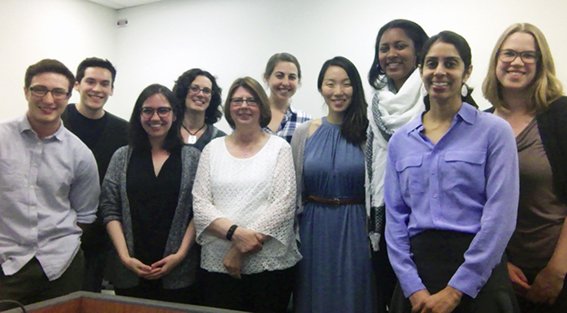 |
| Diversity Steering Committee Members |
Website changes
Finally, we have also been working to update our website. Our website might be some people’s first glimpse into the DSC and the diversity represented within our department. Therefore, we wanted to make sure our public image accurately reflects our current department and DSC, and will hopefully inspire new members to join!
With this, a wonderful subcommittee worked to update the language on our website. Specifically, we updated the description and requirements of our Diversity Science Specialization so that prospective and current students who visit the website can have a clear understanding of the requirements of the specialization. We also updated the written goals of our committee. With this update, we hope that as a committee, we are transparent in our goals, and can thus measure every initiative we bring to the table against whether it makes progress towards our broader goals.
However, our work on the website is still not done. We are currently in the process of updating the faculty page to highlight faculty who are themselves from diverse backgrounds as well as faculty who study issues related to diversity. Additionally, we are collecting bios from current graduate students on how their work relates to issues of diversity or how diversity in academia is important to them. We can’t wait to showcase these!
Achievements
New Awardees of the Diversity Science Specialization: Joyce Yang, Andy Paves, Haley Carroll, and Jenn Staples
The DSC has recently awarded the psychology Diversity Science Specialization certificate to Joyce Yang, Andy Paves, Haley Carroll, and Jenn Staples. Congratulations!
To obtain the Diversity Science Specialization, each student completed four courses related to diversity and a capstone project (https://psych.uw.edu/graduate/areas/diversity-science). The titles of Andy, Joyce, Haley, and Jenn’s capstone projects illustrate the quality and depth of their research focus on diversity:
- Andy Paves: “Coping with discrimination: The roles of discrimination, coping, and ethnic identity in alcohol use of Filipino/a American young adults” (Advisor: Dr. Mary Larimer)
- Joyce Yang: “A mixed-methods study supporting a model of Chinese parental HIV disclosure” (Advisor: Dr. Jane Simoni)
- Haley Carroll: “Bridging the research and practice gap: Qualitative examination of domestic violence and alcohol use in clinical, program implementation, and policy making populations in Chennai, India” (Advisor: Dr. Mary Larimer)
- Jenn Staples: “Minority stress: Understanding alcohol use and suicidality in transgender adults” (Advisor: Dr. Bill George)
Joyce was able to provide a reflection on how obtaining the Diversity Science Specialization has shaped her:
Pursuing the Diversity Science Specialization throughout my graduate training allowed me to remain mindful of the intersecting influences of diversity and identity on all aspects of human behavior. This framework was critical for all of my research, clinical training, and in general how I experienced the world around me. I think the Specialization is a helpful tool for all psychologists in training to build awareness of our bias and how we approach our work.
We unfortunately don’t have space to describe Andy, Joyce, Haley, and Jenn’s amazing diversity-related work in more detail. We encourage those who are interested to contact Andy, Joyce, Haley, and Jenn. The DSC looks forward to discussing and evaluating future students’ Specialization applications.
Supplemental Reading:
Graduate Accomplishments
Autumn 2015
Autumn 2015 quarter concluded with a number of accomplishments and milestones by our graduate students.
We had five students pass their general exams and advance to candidate status. Congratulations to Adrian Andelin (Behavioral Neuroscience with Jaime Olavarria), Tanner DeLawyer (Behavioral Neuroscience with Steve Buck), Carly Loyer (Animal Behavior with Renee Ha), Vasundhara Sridharan (Social Psychology and Personality with Yuichi Shoda), and Kristine Thimm-Louie (Child Clinical with Kevin King).
 |
|
| Linda Zou | Joyce Yang |
Linda Zou (Social Psychology and Personality with Yuichi Shoda), completed a Master's degree. Linda was previously featured for her NSF research on race relations in the United States.
Joyce Yang (Adult Clinical with Jane Simoni), completed our Diversity Science Specialization. Joyce had formerly served as graduate student co-chair to our Diversity Steering Committee and also the subject of a research highlight on her NRSA-funded work on HIV+ stigma in China. Check out her thoughts on integrating the specialization into her clinical training, along with other updates and news from the Diversity Steering Committee, by clicking here.
Four students graduated with their PhDs. Bjorn Hubert-Wallander (Cognition and Perception with Geoff Boynton), successfully defended his dissertation and is currently working at Uber in the Bay Area. Bjorn was previously featured for his NSF-supported research on visual perception. Janie Jun (Adult Clinical with Lori Zoellner), has graduated and now holds a postdoctoral fellowship at the VA Boston Healthcare System. Kerry Spalding (Social Psychology and Personality with Cheryl Kaiser), continues as a User Experience Researcher with Microsoft while Solace Shen (Developmental with Peter Kahn), is at Cornell University on a postdoctoral fellowship.
Winter 2016
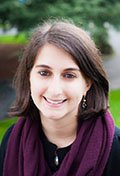 |
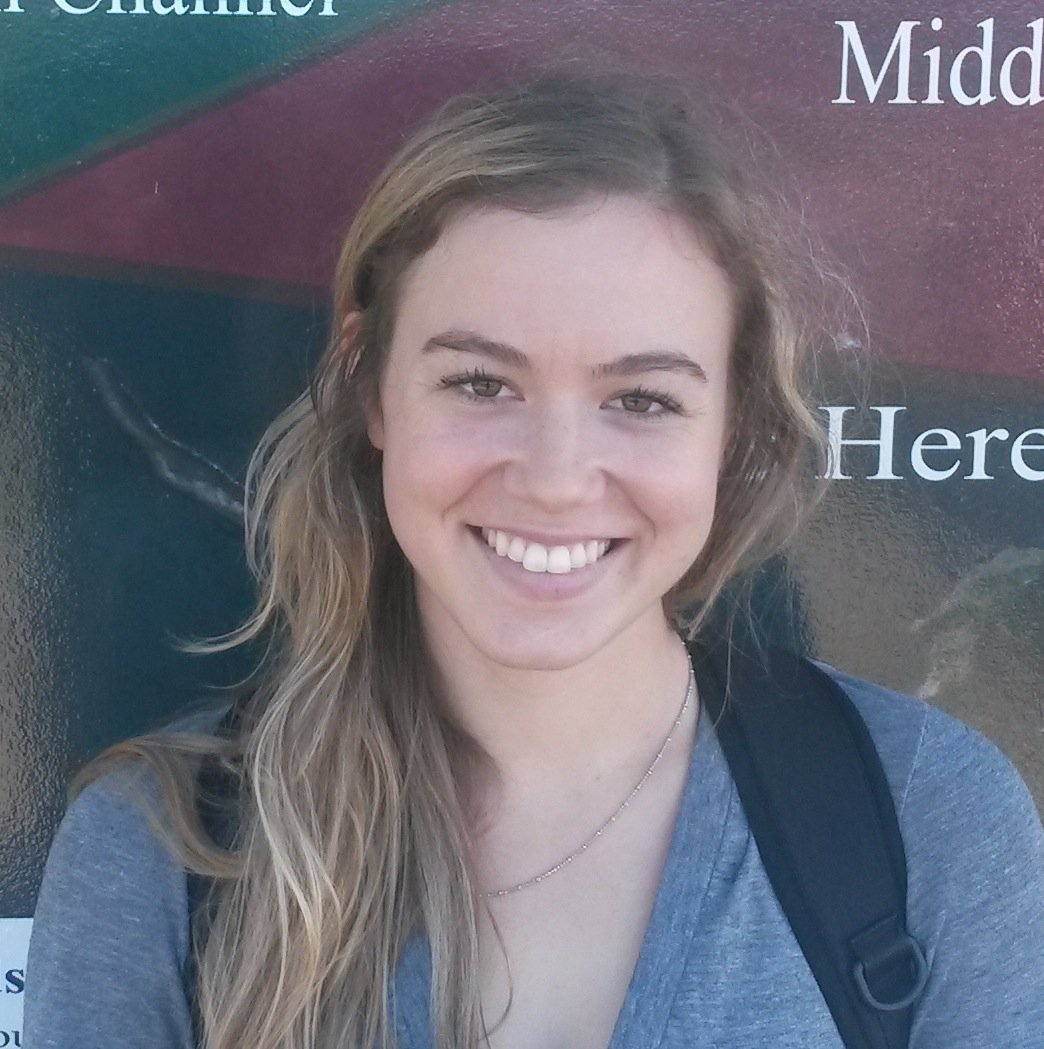 |
| Lizzy Karp | Julie Harrison |
Congratulations to Lizzy Karp (Child Clinical with Wendy Stone), who just received a grant from the ARC of Washington Trust Fund for her work: Factors contributing to parents’ fidelity in implementing intervention with toddlers at risk for ASD.
Congratulations to Julie Harrison (Child Clinical with Shannon Dorsey), who just received a grant from the National Institutes of Health for her work on employee turnover in the public mental health system. Learn more about Julie and her research by checking out our other graduate articles in this newsletter.
Two students completed their general exams and attained doctoral candidacy, James Rae (Social Psychology and Personality with Kristina Olson), and Jason Webster (Cognition and Perception with Ione Fine).
Jacquie Pospisil (Developmental with Jessica Sommerville), completed her Master of Arts, First impressions during infancy: The impact of counter-information.
A number of students completed our optional certificates. Andy Paves (Adult Clinical with Mary Larimer), and Haley Carroll (Adult Clinical with Mary Larimer), both completed the Diversity Science Specialization while Alicia Yiqin Shen (Social Psychology and Personality with Yuichi Shoda), and Sarah Edmunds (Child Clinical with Wendy Stone), finished the Quantitative Minor. These certificate programs were created to expand our students' training and are only available to currently enrolled Psychology graduate students. To date, we have awarded 19 Quantitative Minors and 17 Diversity Science Specializations.
Two students graduated with their PhDs in winter, Anton Exu Mates (Animal Behavior with Jim Ha), and Libby Huber (Cognition and Perception with Ione Fine). We wish them both well!
Spring 2016
The Hunt fellowship was set up by a Earl Buz Hunt and his wife Marylou. It supports graduate students on their independent research not covered by their advisors funding. This year, Blake Pellman (Behavioral Neuroscience with Jeansok Kim), and Laura Brady (Social Psychology and Personality with Yuichi Shoda), have been selected as Hunt Fellows. Laura was previously featured for her NSF-supported research on discrimination and racism. Professor Hunt recently passed away and we were able to contact past recipients of his fellowship for their thoughts and words on their experience being supported by the Hunt Dissertation Fellowship.
Alicia Yiqin Shen (Social Psychology and Personality with Yuichi Shoda), was selected to participate in the eScience Institute Data Science for Social Good summer program. The program brings together data and domain scientists to work on focused, collaborative projects that are designed to impact public policy for social benefit.
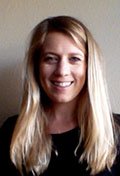 |
| Katy Fladeboe |
Katy Fladeboe (Developmental with Lynn Fainsilber Katz), Lizzy Karp (Child Clinical with Wendy Stone), and Alicia Yiqin Shen (Social Psychology and Personality with Yuichi Shoda) were awarded ALCOR summer fellowships. The ALCOR award was set up by Harry and Claire Garlick Peterson to the College of Arts and Sciences to support students in Psychology and Symphonic Music programs.
The Psychology Department created the Psychology Department Scholars award program to provide summer support to incoming graduate students (as part of recruitment), and to outstanding continuing students. In summer 2016, our five scholars are: Karen Chang (Social Psychology and Personality with Yuichi Shoda), Sarah Edmunds (Child Clinical with Wendy Stone), Prerna Martin (Child Clinical with Shannon Dorsey), Lindsey Nietmann (Animal Behavior with Renee Ha), and Jennifer Stapes (Adult Clinical with Bill George).
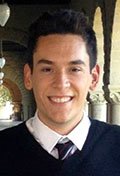 |
| Eric Gomez |
Eric Gomez (Social Psychology and Personality with Cheryl Kaiser), was recently awarded a Ford Foundation Fellowship. Eric is a first year student who is also supported by the GO-MAP Presidential Fellowship which provides support for his first and dissertation years of study. Read more about our latest graduate student here!
Ashley Ruba (Developmental with Betty Repacholi), received an Honorable Mention for the NSF Graduate Research Fellowship Program (GRFP).
 |
| Ashwin Bhandiwad |
Brianna Yamasaki (Cognition and Perception with Chantel Prat), received a GO-MAP Dissertation Stroum Fellowship. The Stroum supports her during her final/dissertation year of our graduate program, which will be 2016-2017. Thank you to the GO-MAP office! We will be featuring Brianna in our winter issue, but in the meantime, read about Ashwin Bhandiwad's (Animal Behavior with Joseph Sisneros), experience while on the Stroum this academic year.
We have many more accomplishments to share with you once the quarter is over. Please visit us again in winter for the next newsletter!